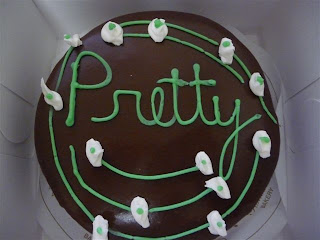-From Aphrodite's Daughters by Jalaja Bonheim
A movie review that Sounds and Feels like one I'd like to see follows after Scout's cute image:
 • Poetry, directed by Lee Changdong — "It has a very simple-seeming premise. It's about an old woman in her '60s who's retired and on a pension, and who works as a maid to help support her grandson. Because her life is slightly boring and [she's] looking for something, she decides to take a poetry-writing workshop. And the poetry professor tells her that she needs to see life as it is. And what gradually happens over the next two hours is, she starts to see that. Her grandson gets involved in a scandal; the way that the parents try to deal with the scandal is kind of nasty. And in fact, she reveals herself to have a much deeper, richer and bigger inner life than you would have imagined. ... And along the way, she learns to see things she hadn't seen before. ... It's a movie centered on people writing poetry, or trying to write poetry, that uses the idea of poetry to take you into a way of seeing the world in a richer and more profound way. I think it was probably one of the two or three most admired films [at Cannes]." -Reviewed by John Powers of NPR
• Poetry, directed by Lee Changdong — "It has a very simple-seeming premise. It's about an old woman in her '60s who's retired and on a pension, and who works as a maid to help support her grandson. Because her life is slightly boring and [she's] looking for something, she decides to take a poetry-writing workshop. And the poetry professor tells her that she needs to see life as it is. And what gradually happens over the next two hours is, she starts to see that. Her grandson gets involved in a scandal; the way that the parents try to deal with the scandal is kind of nasty. And in fact, she reveals herself to have a much deeper, richer and bigger inner life than you would have imagined. ... And along the way, she learns to see things she hadn't seen before. ... It's a movie centered on people writing poetry, or trying to write poetry, that uses the idea of poetry to take you into a way of seeing the world in a richer and more profound way. I think it was probably one of the two or three most admired films [at Cannes]." -Reviewed by John Powers of NPR












